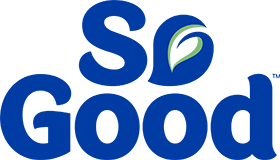Whether for better health, a better environment, or animal welfare, Kiwis are increasingly saying good-bye to the lamb roast and embracing a poke bowl packed with plant goodness.
Switching to a vegan diet means cutting out all animal products. That’s not just meat and fish. It includes dairy, eggs and even animal products like honey. A lot of processed foods also contain traces of animal products.
But it’s not just what you cut out, what you add is just as important. Focus on enjoying a really wide variety of fruit and veggies, nuts, seeds, grains and legumes to get the wide range of nutrients they provide.
It is important to recognise that there are some vitamins and minerals that are harder to get from plants or may not be available at all. The biggest challenges are vitamin B12, omega-3 essential fats and calcium.
To get you started on the right track, our dietitians have shared their insights on including these key nutrients into your vegan dishes.
Calcium
Kiwis get most of their calcium from milk and dairy foods. We need it for strong bones and teeth, and for nerve and muscle function. Yet many Kiwis do not get enough calcium — 45% of males and 73% of females (aged two years and over).
So when you cut dairy from your diet, it is really important to look for other sources of calcium to nourish your bones and body. Fortified plant milks and cereals are a good place to start. A serve of So Good Soy or Almond Milk provides at least a third of your daily calcium needs.
Other plant foods with small amounts of calcium include firm tofu, almonds, Brazil nuts, dried figs and apricots, unhulled Tahini, chickpeas, leafy greens like kale, broccoli and bok choy.
A high calcium diet is important for enhancing bone density, meaning you will have stronger bones. Your body stores calcium in your bones and if you’re not getting enough calcium from your diet, it will start to tap into these stores, potentially reducing your bone strength. On average adults need 1000mg of calcium a day.
Vitamin B12
This vitamin is found almost exclusively in animal foods, so it can be difficult to get enough when you are following a vegan diet. It’s important to look for foods fortified with vitamin B12. Many plant-based milks, like soy milk and almond milks, are fortified — just check the label and choose plant milks that contain 0.4ug /100mL of B12. Another good option is meat alternative products, like the Vegie Delights range of plant-based foods that are also fortified with vitamin B12.
Not getting enough B12 can lead to a deficiency of this important nutrient, which can cause serious health problems, even neurological disorders. If you are switching to a vegan diet, it’s a good idea to talk to your doctor, who may wish to monitor your B12 levels and potentially recommend B12 supplements.
Omega-3 Essential Fatty Acids
You need omega-3 fatty acids for heart health, cognition and vision. The longer chain omega-3 found in fish is the easiest for our bodies to use, but it’s not the only source.
Omega-3s are also found in some plant foods like chia and flax seeds, walnuts, soy beans and oil, wheat germ and green leafy veggies. Our body can convert these plant-based omega-3s to the longer chain form, like the omega-3 found in fish.
However, for your body to effectively use these plant sources of Omega-3, it is important to not eat too many foods that are high in omega-6 fatty acids, as they can reduce the amount of plant omega-3 that is converted to the longer form. Omega-6 foods include sunflower and safflower oils and spreads.
To help hit your omega-3 targets try and eat a tablespoon of chia seeds or flaxseeds or a handful of walnuts a day.
When it comes to following a vegan diet, you may also hear concerns about getting enough iron or protein. These nutrients are available from plant sources it all comes down to eating a good variety of fruit and veggies, nuts, seeds, grains and legumes and taking advantage of fortified foods.
As with making any major diet change, it’s always best to start out by checking in with your doctor or dietitian first.
